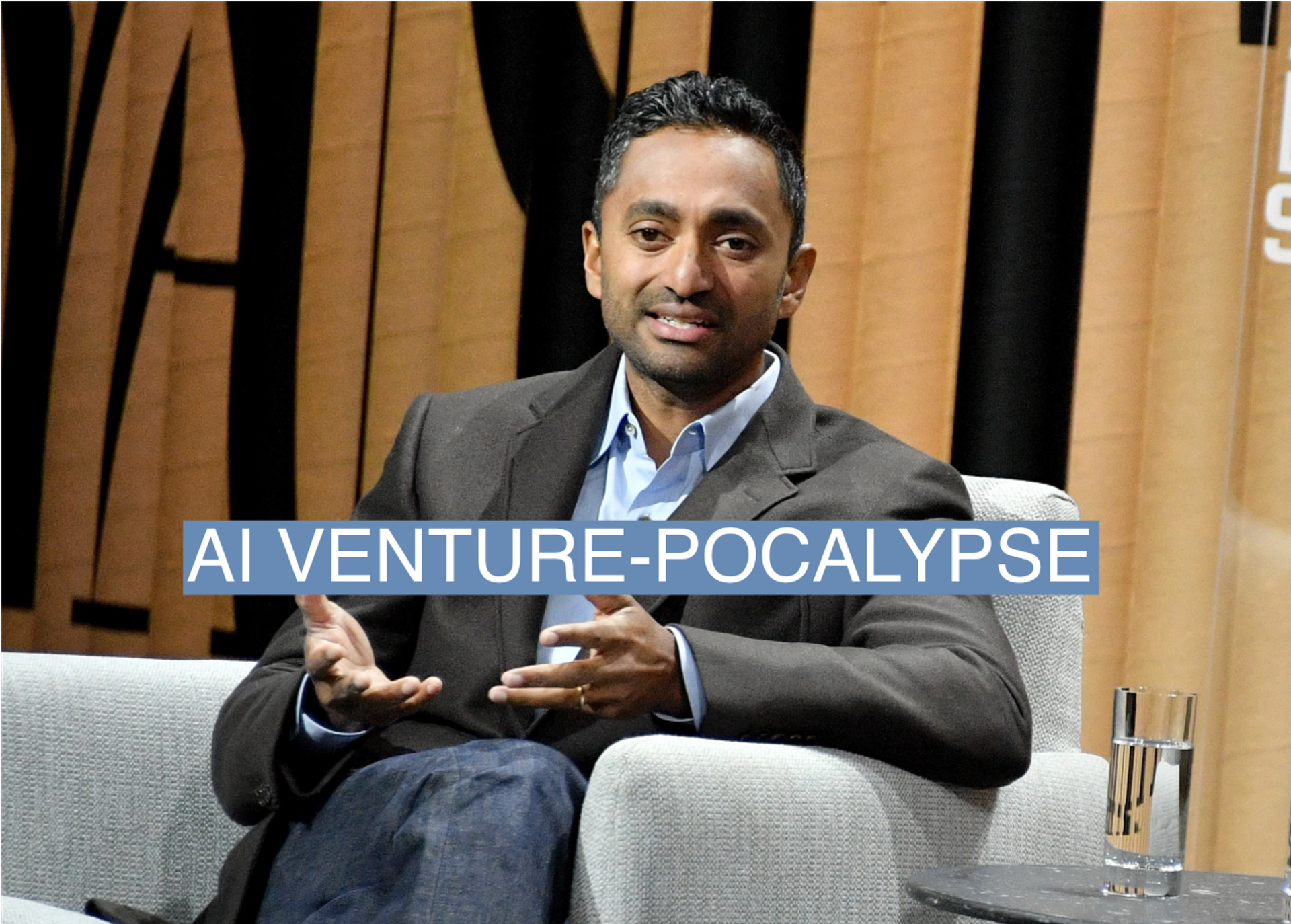The Scene
On a recent afternoon in San Francisco, I chatted with a prominent venture capitalist who is bullish on AI. But he wouldn’t tell me which companies he’s investing in. They’re all in “stealth” mode, he said. Why? The ideas are too easy to copy.
In the mad rush to ride the AI boom, one of the main concerns keeping investors up at night is a single word: defensibility. The ease with which startups can leverage AI may transform industries, but it also means there’s little barrier to entry, making even the best ideas prone to imitation.
A related fear that has reverberated in Silicon Valley is that AI startups may require significantly fewer resources than in the past. There is talk of one-person companies worth more than a billion dollars. (Though really, it’s looking more like trios: A coder, a salesperson, and a designer.)
That could leave venture capitalists flush with capital and not enough attractive places to spend it. Worse, that means the most successful startups can be challenged by the smallest of competitors.
Some venture capitalists even worry their own profession may go away. One point of view shared with me is that much of the process could be automated by AI itself, removing the middleman that stands between big institutional investors and sovereign wealth funds, and entrepreneurs themselves.
Social Capital’s Chamath Palihapitiya tried something like this roughly six years ago. Today, he says he doesn’t believe AI can totally automate what VCs do, but it could do a lot. “I would think an AI can ingest the entire corpus of operational data of a company and spit out a rank of how that company is doing and a relatively accurate sense of how other companies like it have done in the 1-3 years from that point. This would help VCs figure out what to pay for a deal,” he wrote in an email to Semafor.
James Currier, general partner at the VC firm NFX, said AI and large language models, in particular, will level the playing field in tech investing. “So much of what a venture capitalist does — reading, summarizing, and ranking — is also what LLMs already do well,” he said. “Making the investment decision and winning the deal will be more of what a VC will do. This will happen very quickly.”
To develop their investing theses, startup backers are turning to tried and true ideas, like network effects, the phenomenon in which a product or service becomes more valuable as more people use it. They’re looking for proprietary datasets and products with first-mover advantage that gain traction so quickly that they become entrenched in the industries they serve.
In this article:
Step Back
To understand the dilemma facing investors, it helps to think of the latest AI technology as two distinct categories. First, there are the AI “foundational models” that use next-level computer science techniques that serve as the basis on which to build services. Then there are companies that apply those models, prompting or fine-tuning them to create new products and businesses.
Creating the models requires some of the brightest scientists. Putting them to use takes entrepreneurial innovation. But neither is the kind of thing you can protect with a patent or keep secret for very long.
When OpenAI released DALL-E, for instance, which allowed people to create a new image simply by describing it in natural language, it was a first-of-its-kind breakthrough. It was also replicated fairly quickly with open-source technology and is no longer the leader in AI image generation.
Reed’s view
The lack of defensibility and ease of innovation might make it difficult to invest in the right company, but it also bodes well for consumers.
The tech industry has lacked major disruptions in recent years, as large companies have wielded power over competitors, stifling innovation.
Now, what if AI makes it possible for a tiny production crew to develop computer graphics on par with the best Hollywood studios, or an independent developer to make a highly polished video game for next to nothing?
There are concerns in Washington and even in Silicon Valley that the technology is already being co-opted by big companies like Google and Microsoft. Right now, the trend in the enterprise world is to use APIs from companies like OpenAI and fine-tune them for specific purposes.
But there’s also a lot of evidence that other, smaller players are gaining traction. Hugging Face, a platform for open-source AI systems, is seeing an explosion of submissions of specialized models, big and small.
And there are rumblings that, as the technology matures, a whole new crop of companies will emerge which offer foundational models tailored for highly specific purposes.
In other words, the OpenAIs and Googles might remain juggernauts, but there’s so much demand for the technology that it will be impossible for them to gain a stranglehold on the entire AI market.
Room for Disagreement
Defensibility, profitability, and business fundamentals have very little to do with venture capital investing. Investors are more worried about whether a company is hot, and therefore, whether the valuation increases after they invest. By the time the company nosedives, they’ll get their money out and make a nice profit.
As this New Yorker article argues, venture capitalists are “deforming capitalism.”
Notable
- For AI startups building foundational models, compute power is a key resource. For that reason, many of those businesses have chosen to take investments from the large cloud providers that can dole out processing power as part of the deal, The Information reports.
